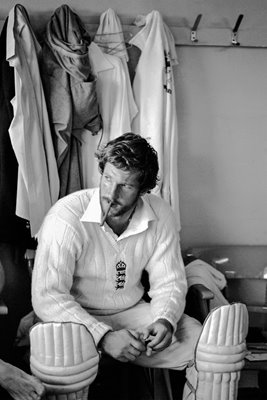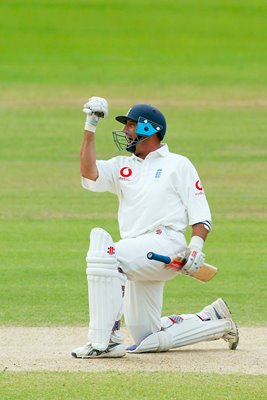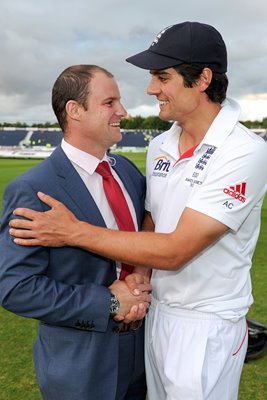Our Pick of the Best England Cricket Captains (1980-Present)
POSTED ON: 14 November 2018
POSTED ON: 14 November 2018
The first England cricket captain was one James Lilywhite, in 1876 and 77. England played Australia. They won a game; they lost a game. There is little else to note about Mr Lilywhite other than that he had a stonking beard and silly surname. But what of the other England cricket captains? Who are the most memorable? Who were the greatest leaders? Who had the silliest name of all?* Find out all, and more, below.
*silliest name is actually a three-way tie between Wally Hammond, Gubby Allen, and Plum Warner.

Ian ‘Beefy’ Botham is widely considered one of the greatest all-rounders ever to pick up a bat and ball. Devastating as a batsman, fearsome as a bowler thanks to his right arm fast swing bowling, Ian Botham’s finest hour was in 1981 against Australia, when his batting skills brought England back from the brink of defeat to a heroic victory with a 149 not-out blitz, in what became known as ‘Botham’s Ashes’ - this image of Botham smoking a cigar at Headingley was snapped then, and has since become iconic. It also made our list of top inspirational sport pictures!
Botham was the second player ever to both score 100 runs and take 10 wickets in a Test, and is arguably the most charismatic England cricket captain ever. Owed to the Ashes and the Jubilee Test in then-Bombay, his exploits in the early 1980s have since become the stuff of legend.
Standing at a towering 6"6, Bob Willis was one of the deadliest bowlers of his day; an aggressive fast bowler with a ratio of 25 runs to a wicket over 90 Test matches. Over his career, Willis took 899 first class wickets, with his all-time best being an insane eight wickets for a just 43 runs in 1981 against the Aussies.
As one of the most prolific and talented batsmen of his era, Mr Gooch is the highest run scorer in the history of cricket to date, with a colossal 67,057 runs tucked neatly under his belt over a career spanning 27 years. He holds a mid-forties batting average against the formidable West Indies, and this at a time when the West Indian team was steadily dismantling teams around the world with their fierce fast-bowling. His blistering 154 runs against the team in 1991 is considered the best century ever played by many cricketing professionals. Go Gooch.

Nasser Hussain was once described by Wisden Cricketers' Almanack as ‘touched by genius’ after reaching a staggering test score of 207 in the 1997 Ashes, and is widely considered to be one of England’s most capable and talented captains. Hussain brought home four Test victories in a row, and was the England cricket captain when the team rose to third place in the worldwide Test ranking. He scored a whopping 5764 Test runs, and made an impressive 67 Test catches.
Following the 2002/3 Ashes, Michael Vaughan was held in fabulous esteem in the cricketing world, with critics hailing him as one of the greatest batsmen in the game. A strong opening batsman, Vaughan once more captained the England team in 2005, leading them to a stunning victory in the Ashes.
The pressure of captaining his country took a toll, however; Vaughan’s batting average dropping from a massive 50.95 when not acting as captain to 36.02 when captaining over the latter half of his career. Despite this – or possibly because of his investing so much in his captaining – Vaughan captained the England team in 51 tests, winning 26 of these, including the first Ashes trophy in 18 years, thereby making him the most successful England cricket captain of all time.

A stylish left-handed opener, Strauss was also known for his fielding abilities, and swiftly made a reputation for himself upon representing England. Strauss was the fourth ever batsman to score a century at Lords on his debut game, and wasn’t far short of scoring a century in both innings of the very same debut.
Strauss captained the England team to a fantastic victory in the 2009 Ashes, and personally scored more than any other player in the game – a colossal 474 runs. Over a ten year career, he played 100 Tests, with a batting average of 40.91, 21 centuries and a top score of 177 runs. He overtook Ian Botham to beat the record for most catches by an outfield player for the England team, and judged on wins, he was the second most successful England captain of all time.
The accolades for Cook stack up fast: the fifth highest Test run scorer in the history of cricket, and touted as one of England’s greatest ever batsmen and one of the productive and creative batsmen in the world today, Ali’s doing pretty well. Further, Cook is the most-capped player in English history, having led the country in 59 Tests and 60 One-Day Internationals.
As if that weren’t enough, Cook is the youngest player ever to achieve 12,000 runs in Test matches – and the sixth person ever to even achieve it at all, and the only English player. Further still, he’s first English player to have ever taken part in – get this – fifty Test victories. He has scored centuries against India, Pakistan, Bangladesh, and the West Indies, and he did so in his first year. Also, unlike Strauss and Vaughan, Cook’s batting average actually went up when he captained. There are just so many stats about this guy that we’re going way overboard with the italics here.
On paper it’s Vaughan. On another piece of paper it’s Cook. It might be Botham or Strauss or Hussain. Basically, we should have defined ‘greatest’ at the start, but we forgot to do that and it’s too late to turn back now. Instead, we shall crown C.B. Fry as England’s greatest cricket captain. A cricketer and footballer for England, a politician, academic, diplomat, writer, publisher, long-jump word record setter, Charles Burgess Fry once even turned down the throne of Albania. He could jump onto a fireplace mantelpiece from a standing position as a party trick, right up until he was 70 years old. His batting average might only have been 32.18, but that’s pretty damn cool.
Fancy being the proud owner of one of our stunning Cricket posters? Check out our range on the main site!